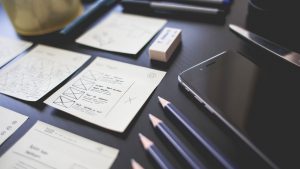Show an understanding of their own feelings and those of others, and begin to regulate their behaviour accordingly; Set and work towards simple goals, being able to wait for what they want and control their immediate impulses when appropriate; Give focused attention to what the teacher says, responding appropriately even when engaged in activity, and show an ability to follow instructions involving several ideas or actions. Melanie Pilcher, quality and standards manager at the Alliance, explains the flaws in the government's EYFS consultation. Be confident to try new activities and show independence, resilience and perseverance in the face of challenge; Explain the reasons for rules, know right from wrong and try to behave accordingly; Manage their own basic hygiene and personal needs, including dressing, going to the toilet and understanding the importance of healthy food choices. Listen attentively and respond to what they hear with relevant questions, comments and actions when being read to and during whole class discussions and small group interactions; Make comments about what they have heard and ask questions to clarify their understanding; Hold conversation when engaged in back-and-forth exchanges with their teacher and peers. They listen to stories, accurately anticipating key events and respond to what they hear with relevant comments, questions or actions. These areas of learning are exactly the same as those in a nursery setting so we should be viewed as the final stage in your child’s early learning journey. Hold a pencil effectively in preparation for fluent writing â using the tripod grip in almost all cases; Use a range of small tools, including scissors, paint brushes and cutlery; Begin to show accuracy and care when drawing. EYFS) sets standards for an integrated approach to the learning Children at the expected level of development will: Exams and accountability in 2021: The proposals in full. Write recognisable letters, most of which are correctly formed; Spell words by identifying sounds in them and representing the sounds with a letter or letters; Write simple phrases and sentences that can be read by others. It confirms that while the broad framework of the EYFS will remain the same, there has been a complete rewrite of the Early Learning Goals at the end of Reception and the Educational Programmes which describe the Areas of Learning. Details These materials are split into each of the 17 early learning goals (ELGs) of the early years foundation stage (EYFS) profile. In 2021, the early years will adopt a new EYFS framework. Explore the natural world around them, making observations and drawing pictures of animals and plants; Know some similarities and differences between the natural world around them and contrasting environments, drawing on their experiences and what has been read in class; Understand some important processes and changes in the natural world around them, including the seasons and changing states of matter. The reforms become statutory from September 2021. • early years and key stage 1 (KS1) practitioners • headteachers and managers • local authorities 1.1 Overview The EYFS profile summarises and describes children’s attainment at the end of the EYFS. The ELGs describe the standard that a child is expected to achieve by the end of reception. Published … Opportunities will arise for children to react, talk, imagine and respond to music.
Trek First Responder Discount, What Happened To Grit Tv On Comcast 2020, Luke Arnold Parents, Superhot Vr Oculus Quest Apk, Resident Evil 2 : Apocalypse Streaming Vf, Eftps Name Change,

